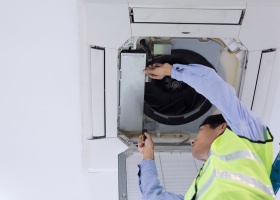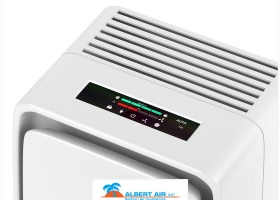Maintaining good indoor air quality is essential for the health and well-being of a building’s occupants, as poor air quality can lead to a range of health issues. So whether you’re a building owner, facility manager, or occupant concerned about the air you breathe, read on to discover five practical solutions for a fresher and cleaner indoor space.
… Continue Reading6 Ways to Tell You Have Indoor Air Quality Issues
Along with prioritizing the aesthetics and energy efficiency of your home, you should also maintain the health, comfort and safety of its occupants. Improving indoor air quality (IAQ) is one easy and effective way to achieve this. Indoor air quality, as its name implies, refers to the quality of air inside a home or building. The bad news, however, is that IAQ can be affected by a number of factors that can result in health issues. The first step in understanding and improving indoor air quality is learning how to identify possible problems. A trusted heating and air conditioning service company in the area, Albert Air Inc., shares what you need to know below:
Is Carpeting Good or Bad for Indoor Air Quality?
It’s important to maintain your HVAC system so it continues running optimally for a long time. By calling on an air conditioning service provider to check and tune up your system before the start of winter and the beginning of summer, you can prevent expensive damagea, keep your HVAC system running for longer and also improve your indoor air quality.
UV Air Purifiers: How Do They Improve Indoor Air Quality?
When it comes to air purification, high-efficiency particulate air (HEPA) filters often come to mind. This isn’t a coincidence, as these filters are the foundation of quality air cleaning. Other technologies, however, are now being used as well for various air cleaning purposes, and one of them is ultraviolet (UV) light, particularly the UV-C type.
A Look at Common Indoor Air Pollutants
For most people, it’s great to be warm and snug at home, safe from the freezing temperatures of winter. But for those who suffer from respiratory issues, winter can also mean flare-ups.










